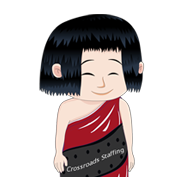The Benefits Of Different Types Of Interviews
So you’ve edited your job posting several times already, tweaked questions, and still aren’t satisfied with your interview process. That’s actually a good thing - it shows you are committed to improvement. However, have you considered changing the type of interview you’re doing? Here are the benefits of conducting different types of interviews:
Phone Interview
A phone interview is efficient as it saves times and it disregards the issues caused with commuting. This is helpful as you can still assess a candidate’s personality through their telephone manner and speaking voice. However, you will find it a bit harder to build rapport and get a more complete sense of their personality.
Generally, phone interviews are better as a first step when you’re interviewing several candidates. They could be used as initial screenings, first interviews with a supervisor as a precursor to an interview with a higher up, or simply your entire interview.
Panel Interview
Though intimidating for many candidates, a panel interview is quite helpful for a company. Having multiple interviewers can be to your benefit, as each interview can focus on different things about the candidate. The mix of different interviewers can also help create more objective pros and cons of each candidate.
Keep in mind, these tend to take up a lot of time. They can also make the decision process longer due to the amount of interviewers involved.
In Person, One-on-One Interview
The tried and true format, sometimes with two interviewers, this is proven to be the most popular. Why? Most likely because it’s the easiest way the direct supervisor of the position can make time for the interviewing and hiring process. No other colleagues involved, no risks taken with phone interviews.
However, one-on-one interviews can also breed biases - which could work to the supervisor’s favor. If they like the candidate’s personality over their accolades, it may just work out simply because they’ll be working with the candidate. However, what if they truly just have a great personality, yet they’re lacking in skill? Choose your ideal interview setting wisely!
30
Jan
Related Posts


